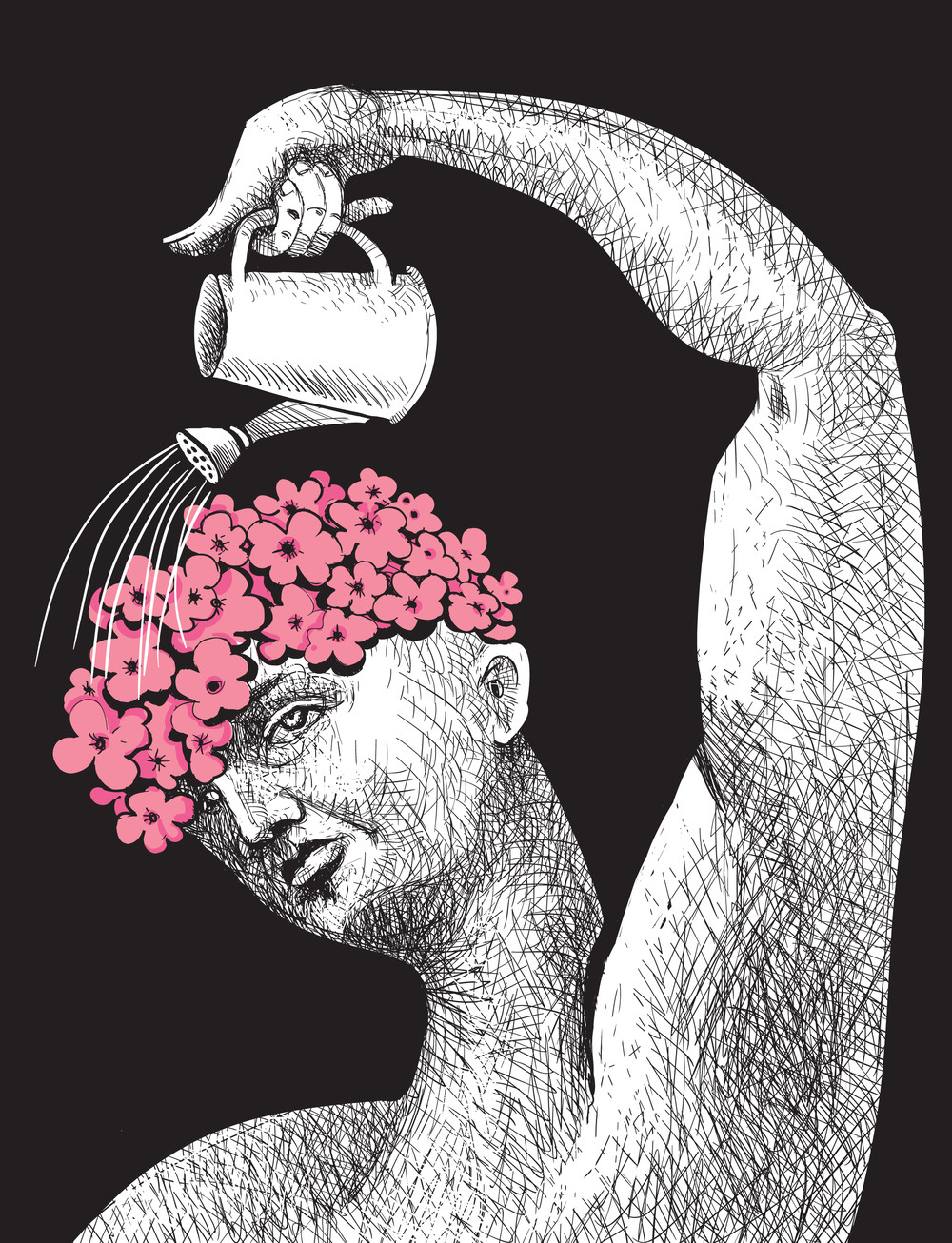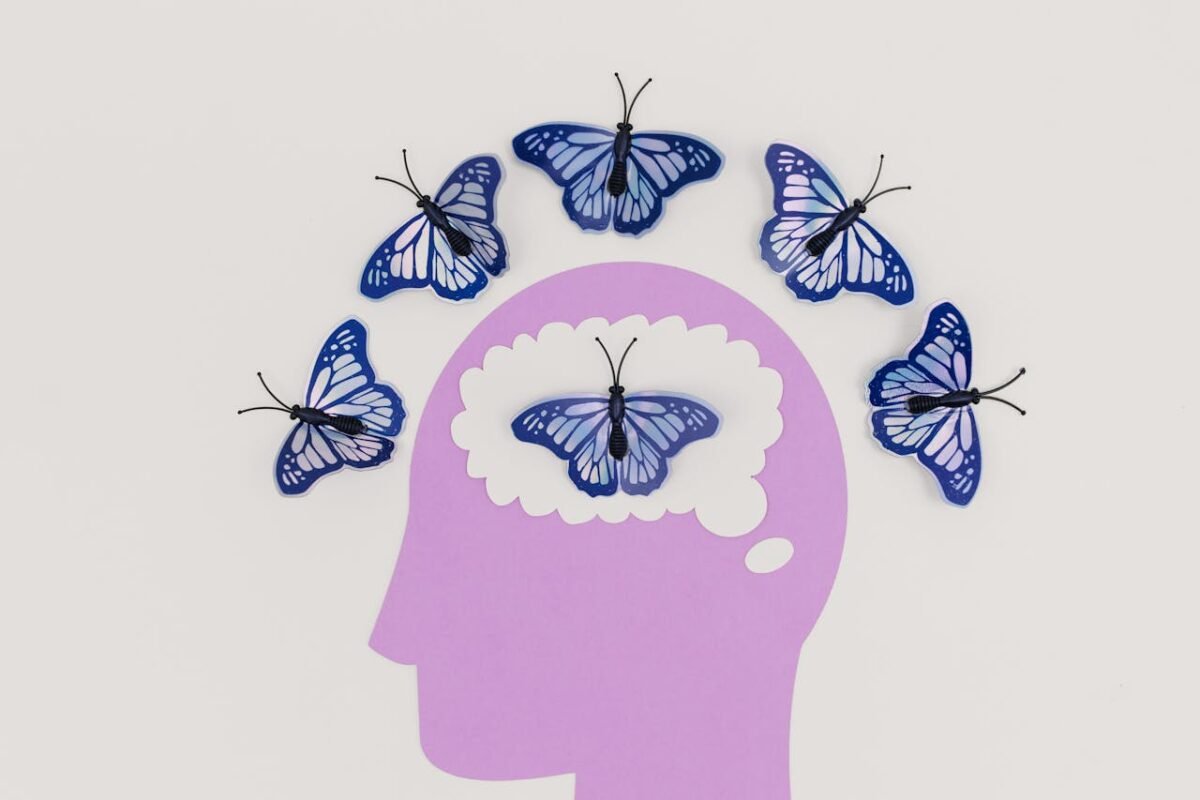Memory is like a personal time machine. It’s the magical ability to revisit moments, learn from the past, and shape the future. It’s where your laughter-filled childhood adventures, the taste of grandma’s cookies, and the thrill of your first love reside.
You could think of it as a vast library, filled with countless books. Some books are well-worn favorites, easily accessible on the top shelf. Others are hidden away, tucked between forgotten volumes, requiring a bit more effort to find.
Our memories are more than just storage; they’re the essence of who we are. They define our personality, our relationships, and our understanding of the world. And while sometimes they play tricks on us, or fade with time, they remain a fundamental part of our human experience.

Why Do We Forget?
Have you ever wondered why your brain seems to have a mind of its own when it comes to remembering things?
It’s like trying to find a specific song on an old radio. Sometimes you hit it right away, and other times, the tune just slips away.
There are a few reasons why we forget:
- Decay: Over time, memories can fade like an old photograph. If you don’t revisit a memory, it can become blurry.
- Interference: New information can sometimes interfere with old memories, making it harder to recall.
- Retrieval Failure: Sometimes, the memory is there, but we can’t quite access it. It’s like knowing a word is on the tip of your tongue but just can’t quite grab it.
It’s interesting to note that forgetting isn’t always a bad thing. Our brains are constantly processing information, and forgetting helps us prioritize what’s important.
Sometimes, these little memory hiccups are nothing to worry about. But if you’re noticing a pattern or it’s really bothering you, it’s a good idea to chat with a doctor. They can help figure out what’s going on and offer some guidance.
Remember, you’re not alone. Millions of people experience memory issues, and there are lots of things you can do to help improve your memory.
Trauma and Forgetting

Trauma is like a heavy blanket that can sometimes cover up our memories. It’s the brain’s way of protecting itself from overwhelming pain. Imagine it like closing your eyes when something scary happens. Your mind is trying to shield you from the hurt.
Sometimes, these memories can be locked away for a long time. It’s like hiding a toy in a box and forgetting where you put it. It doesn’t mean the toy is gone, it just means it’s hard to find.
It’s important to remember that everyone reacts to trauma differently. Some people might have trouble remembering specific details, while others might experience flashbacks or nightmares.
If you’re struggling with memories related to trauma, it’s okay to reach out for help. There are people who can help you understand what’s happening and provide support.
Coping with trauma-related memory issues is like putting together a puzzle with missing pieces. It’s tough, but it’s possible to find your way through.
- Seek professional help: Therapists specialize in helping people work through trauma. They can provide tools and support.
- Be patient with yourself: Healing takes time. Don’t put pressure on yourself to recover quickly.
- Build a support system: Talking to friends, family, or support groups can be incredibly helpful.
- Practice self-care: Taking care of your physical and emotional well-being is essential. This includes things like getting enough sleep, eating healthy, and exercising.
- Mindfulness techniques: These can help you focus on the present moment and reduce stress.
Remember, healing is a journey, not a destination. It’s okay to take things one step at a time.
Understanding Memory Issues
Memory issues can range from minor forgetfulness to something more serious. It’s important to remember that everyone’s brain is different, and what’s normal for one person might not be for another.
There are a few things that can affect your memory:
- Normal aging: As we get older, our brains change a bit. This can lead to some forgetfulness.
- Health conditions: Certain medical conditions, like thyroid problems or sleep apnea, can affect memory.
- Medications: Some medications can have side effects that include memory problems.
- Lifestyle factors: Stress, lack of sleep, and poor diet can also impact your memory.
It’s important to talk to your doctor if you’re concerned about your memory. They can help figure out what’s going on and offer some advice.
Some of the most common memory issues you might have heard of are:
- Alzheimer’s disease: This is a progressive disease that slowly breaks down memory and thinking skills.
- Dementia: This is a general term for a decline in mental ability that interferes with daily life. There are different types of dementia.
- Parkinson’s disease: While primarily known for movement problems, it can also affect memory and thinking.
It’s important to remember that these diseases can be scary, but there’s hope. With early diagnosis and proper care, people can manage these conditions and live fulfilling lives.

The Mental Health Benefits of Art
Your brain is like a muscle: the more you exercise it, the stronger it gets. Here are some simple ways to keep your mind sharp:
Sleep Tight
Getting enough quality sleep is crucial for memory. While you snooze, your brain sorts through the day’s information and stores it for later use. It’s like your brain’s way of hitting the “save” button.
Move Your Body
Physical exercise isn’t just for your muscles. It’s great for your brain too! When you move, your heart pumps more blood to your brain, bringing it the oxygen and nutrients it needs to function at its best.
Fuel Your Brain
What you eat affects your brain power. Foods rich in omega-3 fatty acids, like salmon and walnuts, are brain boosters.Fruits and vegetables packed with antioxidants also help protect your brain cells.
Challenge Your Mind
Keep your brain engaged with puzzles, games, and learning new things. Reading, playing chess, or learning a new language can all help keep your mind sharp.
Manage Stress
Stress can be a memory killer. Find ways to relax, like meditation, yoga, or spending time in nature. A calm mind is a clear mind.
Small changes can make a big difference. Incorporate these tips into your daily routine and watch your memory improve!
A Comprehensive Guide to Memory Enhancement
Let’s talk a bit about Exam Preparation
Exam preparation often involves a large volume of information, and many of us literally find ourselves googling and looking for tips for memory mostly only before a tough exam! Definitely this deserves to be talked about specially under this topic.
Effective Study Techniques
Here are some strategies to enhance your exam performance:
- Active Recall: Instead of passively rereading notes, quiz yourself. This strengthens memory recall.
- Spaced Repetition: Review material at increasing intervals to reinforce learning.
- Pomodoro Technique: Study in focused 25-minute bursts with short breaks to improve concentration.
- Mind Mapping: Visualize concepts and their connections for better understanding.
- Teach Someone Else: Explaining information solidifies your knowledge.
While mastering all memory techniques might be challenging, we can certainly explore a variety of methods and find what works best for you.
Let’s break down your request into specific areas:
Vocabulary
- Mnemonic devices: Create stories or images to associate with new words.
- Flashcards: Regular review reinforces learning.
- Spaced repetition: Gradually increase intervals between reviews.
- Language immersion: Surround yourself with the language to enhance recall.
Names and Faces
- Active listening: Focus on the person’s name when introduced.
- Mental imagery: Create vivid mental pictures of people.
- Repeat the name: Saying the name aloud strengthens memory.
- Find commonalities: Connect the person to someone you already know.
Lists
- Chunking: Group items together based on categories.
- Visualization: Create a mental image of each item.
- Method of loci: Associate items with locations in a familiar place.
- Repetition: Review the list multiple times.
Speeches or Presentations
- Chunking: Divide the speech into smaller, manageable sections.
- Practice aloud: Regular rehearsal builds confidence and memory.
- Keyword outlines: Use keywords as cues for detailed information.
- Visualization: Imagine yourself delivering the speech successfully.
Consistency is key. The more you practice these techniques, the better your memory will become.
Aging and Memory: Nature’s toll on your brains
Memory loss: 7 tips to improve your memory
As we get older, our brains change just like the rest of our bodies.
Imagine your brain as a well-loved library. Over time, it collects more and more books. Sometimes, finding the right book can take a little longer. You might need to check the index or ask for help from a librarian (your brain’s helpful assistant!).
Also, the way your brain stores information might change. It’s like moving books from one shelf to another. Sometimes,you know the book is there, but you can’t quite remember where you put it.
Puzzles are like gym workouts for your brain! They challenge you to think in new ways, connect the dots, and find solutions. It’s like training your brain muscles to be stronger and faster.
Whether it’s a crossword, Sudoku, or a jigsaw puzzle, they all help to keep your mind active and engaged. It’s like giving your brain a fun workout that helps it stay fit and healthy.
It’s essential to note that nothing works absolutely. Puzzles do not prevent serious issues like dementias but it can slow the progression of memory loss.
Keeping your brain happy and healthy as you age is like taking care of a garden. You want it to bloom beautifully,right? Here are a few tips to help your memory garden grow:
- Stay curious: Learning new things is like planting fresh seeds. Try a new hobby, read a book, or learn a dance step. Curiosity is not just a characteristic of a child but also for someone who has seen it all!
- Move your body: Exercise isn’t just for your muscles. It helps your brain stay sharp and happy. A brisk walk or a gentle yoga class can do wonders.
- Socialize: Connecting with friends and family is like fertilizing your brain. Laughter, shared stories, and good company are great for your memory.
- Eat well: As you age, sure you might feel less hungry but nourishment is still important! Nourish your brain with healthy foods. Think colorful fruits, veggies, and whole grains.
- Sleep soundly: Rest is like giving your brain a chance to recharge. Aim for a good night’s sleep even if it gets harder with time.
- Challenge yourself: Puzzles, games, and learning new things are like brain workouts. Keep your mind active and engaged. As we age maybe our engagements go down, it’s so much more necessary that we find some ways to make sure we engage ourselves!
Everyone ages differently, and some people notice changes more than others. The important thing is to enjoy the journey,and remember, a little forgetfulness is a normal part of life. If you’re worried about your memory, talking to a healthcare professional can provide peace of mind.
Memory in the Digital Age

Strange Stories of Extraordinary Brains—and What We Can Learn From Them
In today’s fast-paced world, our brains are constantly bombarded with information. With smartphones, computers, and the internet at our fingertips, we have an incredible amount of knowledge at our disposal. This digital age has undeniably changed the way we think, learn, and remember.
On the one hand, it’s amazing how much information we can access instantly. Need to know the capital of Australia? Google it. Want to learn a new skill? There’s a tutorial for that. This constant access to information can free up mental space for creativity and problem-solving.
On the other hand, relying too much on external memory can weaken our own mental muscle. We’re less likely to memorize phone numbers, directions, or important dates when we can easily look them up. This reliance on technology might be making our brains a little lazy.
It’s a delicate balance. While technology offers incredible benefits, it’s essential to find ways to exercise our memory and avoid becoming overly dependent on external sources.
So here was our attempt at giving you a comprehensive guide to a better memory which is so important in today’s time. Do know that everyone’s brain is different, so don’t get discouraged if something doesn’t work right away. The key is to find what works best for you and make it a habit. It might take a little time and effort, but trust me, a sharper memory is totally worth it!

